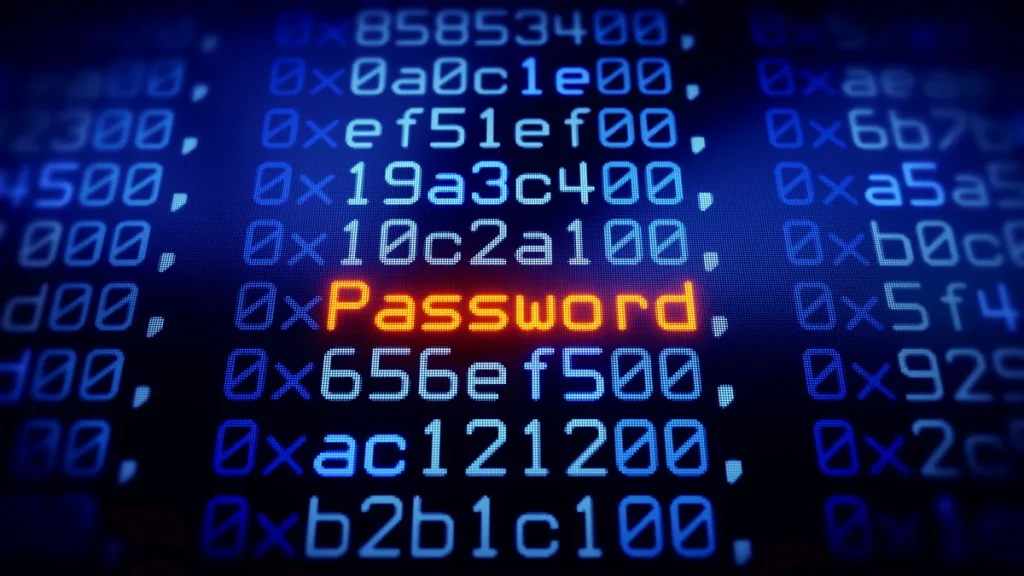How Do Hackers Find Passwords

Passwords are the keys to your digital life, safeguarding everything from email to social media accounts. Understanding how hackers find passwords is critical for protecting your digital privacy and enhancing your cybersecurity. Cybercriminals use sophisticated methods like phishing, brute-force attacks, and malware to steal credentials, often exploiting human error or technical vulnerabilities. This article explores these tactics, their legal implications, and actionable steps to secure your accounts. By leveraging ethical hacking and robust data protection strategies, you can safeguard your passwords and maintain trust in your online interactions. Let’s dive into the world of password hacking and learn how to stay secure.
Common Methods Hackers Use to Find Passwords
Hackers employ a variety of techniques to uncover passwords, combining technical exploits with psychological manipulation. Recognizing these methods is essential for bolstering your cybersecurity.
Phishing Attacks: Deceptive Tactics to Steal Credentials
Phishing is a primary method for hackers to find passwords. They send fraudulent emails, texts, or messages that mimic trusted sources, such as banks or social media platforms, tricking users into entering credentials on fake login pages. A Kaspersky report on phishing notes that phishing attacks target millions of users annually, exploiting trust in digital communications. To protect your digital privacy, always verify sender details and avoid clicking suspicious links.
Brute-Force Attacks and Credential Stuffing
Hackers use brute-force attacks to guess passwords by systematically trying combinations, especially if passwords are weak or predictable. Credential stuffing, another common tactic, involves testing passwords stolen from one breach on other platforms. Recent posts on X highlighted a surge in credential-stuffing attacks targeting email and social media accounts. Using strong, unique passwords and enabling two-factor authentication (2FA) are vital data protection measures. Explore cybersecurity services for expert advice on securing your accounts.
Social Engineering: Exploiting Human Trust
Social engineering involves manipulating users into revealing passwords through deception, such as posing as tech support or trusted contacts. This tactic exploits trust, impacting personal and professional relationships. For example, hackers may trick users into sharing recovery details over the phone. Ethical hacking can simulate these attacks to identify vulnerabilities. Learn how to protect your credentials with ethical hacking services.
Legal Implications of Password Hacking
Stealing passwords is illegal under laws like the Computer Fraud and Abuse Act (CFAA) in the U.S. and the General Data Protection Regulation (GDPR) in the EU. A Harvard Law Review article emphasizes that unauthorized access to accounts using stolen passwords can lead to significant fines or imprisonment. These laws protect digital privacy and highlight the importance of cybersecurity compliance.
For individuals and businesses, adhering to these regulations is crucial to avoid legal repercussions. Engaging certified ethical hackers can ensure your accounts meet security standards by identifying and addressing vulnerabilities. Visit data protection resources for tailored solutions to safeguard your passwords.
Technical Vulnerabilities Hackers Exploit to Find Passwords
Hackers exploit technical weaknesses in devices, networks, and software to uncover passwords. Understanding these vulnerabilities is key to implementing effective cybersecurity measures.
Malware and Keyloggers
Malware, such as keyloggers, is a common tool for stealing passwords. Delivered through infected downloads, emails, or websites, keyloggers record keystrokes to capture login credentials. A Center for Internet Security report highlights the growing prevalence of malware targeting personal devices. Regularly updating antivirus software and avoiding suspicious downloads are essential for data protection.
Data Breaches and Exposed Databases
Hackers often obtain passwords from data breaches, where poorly secured databases expose user credentials. Breached data is sold on the dark web or used for credential stuffing. Recent X posts reported vulnerabilities in third-party services leaking password data, emphasizing the need for vigilance. Using unique passwords for each account and monitoring for breach alerts can mitigate risks. For professional security audits, explore penetration testing services.
Actionable Solutions to Protect Your Passwords
Securing your passwords requires proactive measures and a commitment to digital privacy. Here are practical steps to keep hackers at bay:
- Use Strong, Unique Passwords: Create complex passwords with a mix of letters, numbers, and symbols. Use a password manager to generate and store them securely.
- Enable Two-Factor Authentication (2FA): Activate 2FA on all accounts to add a secondary verification layer, such as a code sent to your phone.
- Beware of Phishing Attempts: Scrutinize emails or messages for signs of phishing, such as misspelled domains or urgent requests. Verify URLs before clicking.
- Monitor for Data Breaches: Use services like Have I Been Pwned to check if your credentials have been exposed in a breach.
- Update Devices Regularly: Keep your devices and software updated to patch vulnerabilities that hackers exploit.
For advanced protection, consider ethical hacking services to test your account security. Visit Hacker01’s ethical hacking page for tailored solutions.
The Role of Ethical Hacking in Password Security
Ethical hacking is a proactive approach to securing passwords. White-hat hackers simulate cyberattacks to identify weaknesses, such as vulnerable software or weak credentials, before malicious actors exploit them. According to Hacker01, ethical hacking services are increasingly vital as password-related attacks grow more sophisticated.
For businesses, ethical hacking ensures compliance with data protection regulations and builds trust with users by safeguarding their credentials. Penetration testing and vulnerability assessments can uncover risks in your accounts, enhancing overall cybersecurity. By partnering with professionals, you can protect your passwords and maintain secure online interactions.

Conclusion
Understanding how hackers find passwords empowers you to protect your digital privacy. From phishing scams to malware and data breaches, cybercriminals exploit various vulnerabilities. By using strong passwords, enabling 2FA, and staying vigilant, you can significantly reduce risks. For advanced security, ethical hacking services offer proactive solutions to identify and fix weaknesses. Explore Hacker01’s cybersecurity solutions to safeguard your passwords and ensure a secure digital presence. Take action today to protect your accounts and maintain trust in your online relationships.